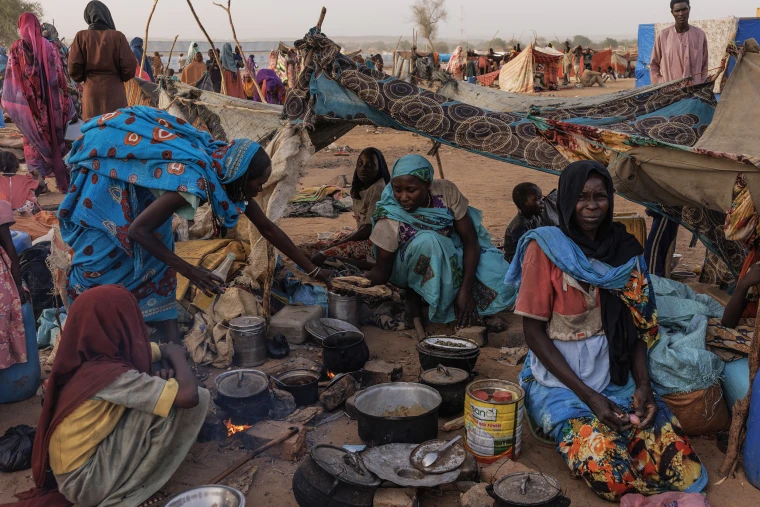A United Nations-backed human rights mission has called for an “independent and impartial” peacekeeping force to protect civilians in Sudan, where it suspects war crimes have been committed during the country’s ongoing civil war.
The 19-page report, based on 182 interviews with survivors, family members, and witnesses, alleged that both the Sudanese Armed Forces (SAF) and the paramilitary Rapid Support Forces (RSF) are responsible for horrific abuses, including the torture, mutilation, and murder of civilians.
The report estimated that at least 18,800 people have been killed so far. It also accused both sides, along with their allies, of perpetuating “shocking human rights abuses” against the civilian population, sparing no community from the violence.
Mohamed Chande Othman, the chair of the mission, emphasized the importance of urgent action. “The gravity of these findings underscores the urgent and immediate need for action to protect civilians,” he said.
“Given the failure of the warring parties to spare civilians, it is imperative that an independent and impartial force with a mandate to safeguard civilians be deployed without delay.”
Mohamed Chande Othman
International Arms Embargo Urged
Moreover, the report also calls for an international arms embargo on Sudan, warning that foreign governments providing weapons to either side could be complicit in the violence. The investigators are urging the international community to act swiftly to prevent further escalation and suffering.
The RSF, in particular, has been singled out for ethnically motivated attacks against non-Arab communities, particularly the Masalit people in West Darfur.
Accusations include arbitrary killings, rape, torture, and destruction of property, with claims that the paramilitary group has been using children as young as 15 in military service and forcing people into slave labor.
Since the start of the civil war, over 10 million people have fled their homes, escaping the violence between Sudanese generals Abdel Fattah al-Burhan (SAF) and Mohamed Hamdan Dagalo (RSF).
Many have sought refuge in neighboring countries like Chad and South Sudan, which are already grappling with their own crises triggered by conflict and climate change.
In addition to the war, Sudan is also experiencing devastating flooding, exacerbating the country’s humanitarian crisis. The situation has reached a point where aid organizations are sounding the alarm over the threat of starvation.

According to the updated Global Report on Food Crises, nearly two million people in Sudan are currently facing “the most critical level of food insecurity,” classified as Phase 5 on the global IPC scale, which tracks acute hunger.
Starvation Crisis Hits Internally Displaced Camps
The IPC Phase 5 level represents “an extreme lack of food and exhaustion of coping capacities,” with the report warning that this condition sharply increases the risk of acute malnutrition and death. Humanitarian organizations say that internally displaced people (IDP) camps have already seen famine break out, with the situation expected to worsen in the coming months.
The crisis in Sudan is not only affecting its own citizens but is also spreading to neighboring countries. Chad and South Sudan, both of which are hosting a large number of Sudanese refugees, are dealing with their own humanitarian emergencies. Climate-induced disasters and ongoing conflicts in these regions are stretching already limited resources.
The report also highlighted that acute malnutrition among children and women in crisis-hit regions remains dangerously high, with many families unable to afford a healthy diet.
These findings were prepared by a consortium of UN agencies, including the FAO, the World Food Programme (WFP), the UN Children’s Fund (UNICEF), and the UN International Organization for Migration (IOM), alongside other humanitarian partners.
As Sudan’s civil war rages on, the international community faces increasing pressure to act swiftly to prevent further loss of life and human suffering.
READ ALSO: Gaza’s Peace Prospects in Limbo




















